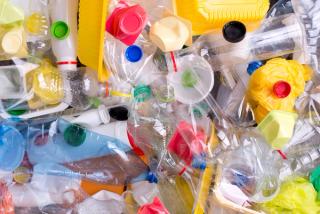
Preparing for Canada's Federal Plastics Registry: Is your business ready?
by Melissa Birch, Tarra Tamang
View post

Nobody wants to be found guilty of greenwashing. The reputational damage can be significant, as greenwashing risks undermine trust by sapping consumer and investor confidence. The challenge for business, with the number of greenwashing litigation cases rising sharply, is keeping on top of new legislation coming from multiple jurisdictions.
In March, the US Securities and Exchange Commission adopted rules to enhance and standardise climate-related disclosures on March 6, 2024[1]. This step comes after California’s Third Climate Law required new carbon offset disclosures in an explicit effort to combat greenwashing in October 2023.
In Asia Pacific, governments are quickly catching up. South Korea, for example, was the first East Asia nation to draft a law in January 2023. China issued regulations which include greenwashing prevention requirements in March and that same month Australia saw its first successful greenwashing civil penalty action.
In Latin America, countries are working on new regulation too. Perú has already established sanctions through their National Institute for the Defence of Competition and the Protection of Intellectual Property. Chile is working towards approval in its congress and Colombia also has a motion in parliament.
Across Africa, the regulatory landscape so far appears more fragmented, with observers deploring an absence of clear regulations and standards [2] for verifying claims. In South Africa, for instance, legislation may not be explicit, but relevant norms are part of the country’s Consumer Protection Act and exist in voluntary standards.
In Europe, legislation at national levels has already been in place such as the German Act against Unfair Competition (UWG). Similarly, France is one of the few countries worldwide to have criminalised greenwashing, and it has further increased sanctions in its 2021 Climate and Resilience Law.
Overall, the European Union has been at the forefront of combatting greenwashing, going back to its 2007 Unfair Commercial Practices Directive (UCPD). And as part of the European Green Deal, the European Commission announced plans to reduce the risk of false green claims in 2019, promising to ban [3]:
The EU Green Claims Directive is the most recent European game changer. Adopted on 12 March 2024, the new rules outline required information to be provided to authorities and the public before publishing an explicit environmental claim [4]. They also provide details on third-party verification and penalties. Fines could be at least at 4% of annual turnover. Claims based solely on carbon offsetting schemes are illegal.
More than half of the respondents said in a survey carried out across eight countries that they make green claims [5]. In the European Union alone, there are 230 different eco labels [6]. At the same time, the UK Competition and Markets Authority (CMA) found 40% of corporate environmental claims made online are likely deceptive or false [7]. This represents a serious reputational and financial risk for businesses.
The use of the claim ‘climate neutral’ is a particular risk in this context, as NGOs are regularly suing companies for declarations that may largely be based on carbon offsetting. In the past year, according to Germany’s Die Zeit [8], several big brands have silently shelved their climate neutral claims, including Gucci, KitKat, and Nespresso.
Climate change-related lawsuits have more than doubled over the past five years, according to the UN Environment Programme (UNEP)[9]. And the number of cases is expected to increase as mandatory reporting, such as the EU Corporate Sustainability Reporting Directive (CSRD), comes into effect.
Unsurprisingly, companies are now increasingly looking for tools that they can leverage to understand which risks may create reputational and legal damage across their value chain. SLR’s complimentary Greenwashing Risk Detector provides a useful starting point for identifying areas that should be improved.
Useful tools:
SLR's Greenwashing Risk DetectorThis article was written by Daniel Silberhorn
-----------------------------
References
[1] https://www.sec.gov/news/press-release/2024-31
[2] https://theexchange.africa/countries/cop28-greenwashing-in-africa/#google_vignette
[3] https://environment.ec.europa.eu/topics/circular-economy/green-claims_en
[4] https://www.europarl.europa.eu/thinktank/en/document/EPRS_BRI(2023)753958
[5] https://www.nim.org/en/publications/detail/greenwashing-vs-greenacting
[6] https://environment.ec.europa.eu/topics/circular-economy/eu-ecolabel/consumers_en
[7] https://www.gov.uk/government/news/global-sweep-finds-40-of-firms-green-claims-could-be-misleading
[8] https://www.zeit.de/2023/42/greenwashing-apple-watch-co2-kompensation-verra-zertifikate
[9] https://www.unep.org/resources/report/global-climate-litigation-report-2023-status-review